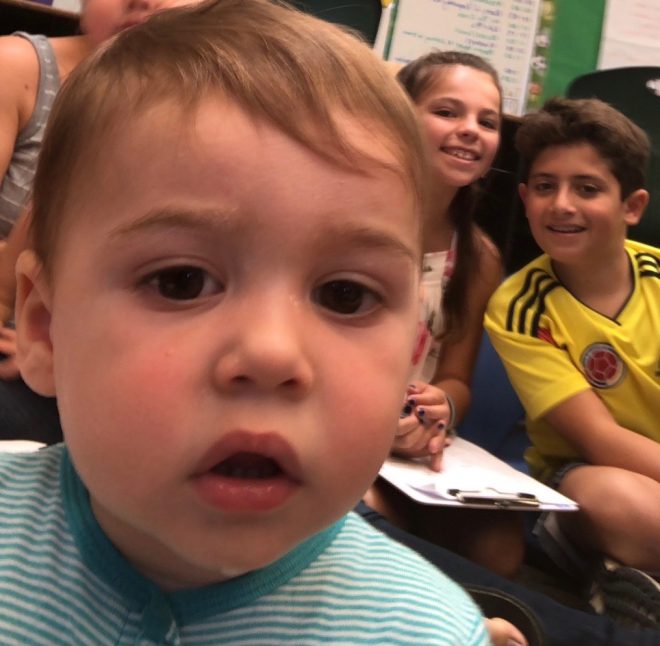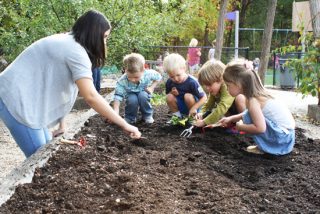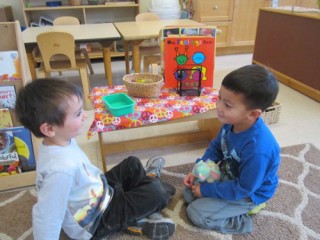Recently, many of the Seven Hills faculty and staff read the book UnSelfie: Why Empathic Kids Succeed in Our All-About-Me World by Michele Borba. Dr. Borba argues that empathy-building is not only a moral imperative, but a key advantage in kids attaining health, happiness, and future career success. UnSelfie unpacks several empathy studies, including the “Roots of Empathy” evidence-based program developed by educator Mary Gordon in 1996. At the heart of this study are babies who visit classrooms—and “teach” students to observe development and label feelings.
Our 5th grade team was inspired to bring a similar experiential lesson to campus during the first week of school. Five special baby guests–including one teacher’s son and another teacher’s nephew–visited the 5th grade classrooms. As students observed the facial expressions and body language of the babies, they discussed what emotions they saw conveyed: scared? confused? relaxed? They also talked about appropriate and compassionate reactions to each emotion. Students then reflected on how this awareness could help them interact with more empathy, kindness, and understanding toward friends and family.
“Building emotional intelligence in friendships is a key skill, but these skills have to be taught and developed,” said teacher Kelly McCargar. Fellow teacher Cassidy Thompson added that as a more “plugged in” generation today’s children often don’t have the same level of practice with socializing and reading others’ emotions. Empathy needs to be taught, and raising awareness levels is the first step.
The New York Times reports that empathy lessons are spreading amid concerns over student pressures—from high-stakes tests to the race to college starting in kindergarten. Nurturing social-emotional literacy in all children reduces aggression and antisocial behavior creating more caring classrooms. Bringing together 5th graders and babies, is one fine example of our commitment to educating both mind and heart!



